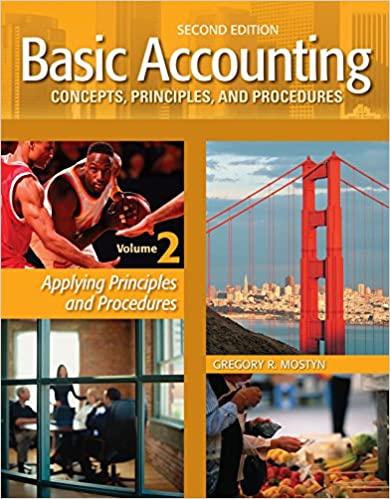Answered step by step
Verified Expert Solution
Question
1 Approved Answer
E8-7 Computing Bad Debt Expense Using Aging of Accounts Receivable Method [LO8-2] Brown Cow Dairy uses the aging approach to estimate Bad Debt Expense. The


Step by Step Solution
There are 3 Steps involved in it
Step: 1

Get Instant Access to Expert-Tailored Solutions
See step-by-step solutions with expert insights and AI powered tools for academic success
Step: 2

Step: 3

Ace Your Homework with AI
Get the answers you need in no time with our AI-driven, step-by-step assistance
Get Started


